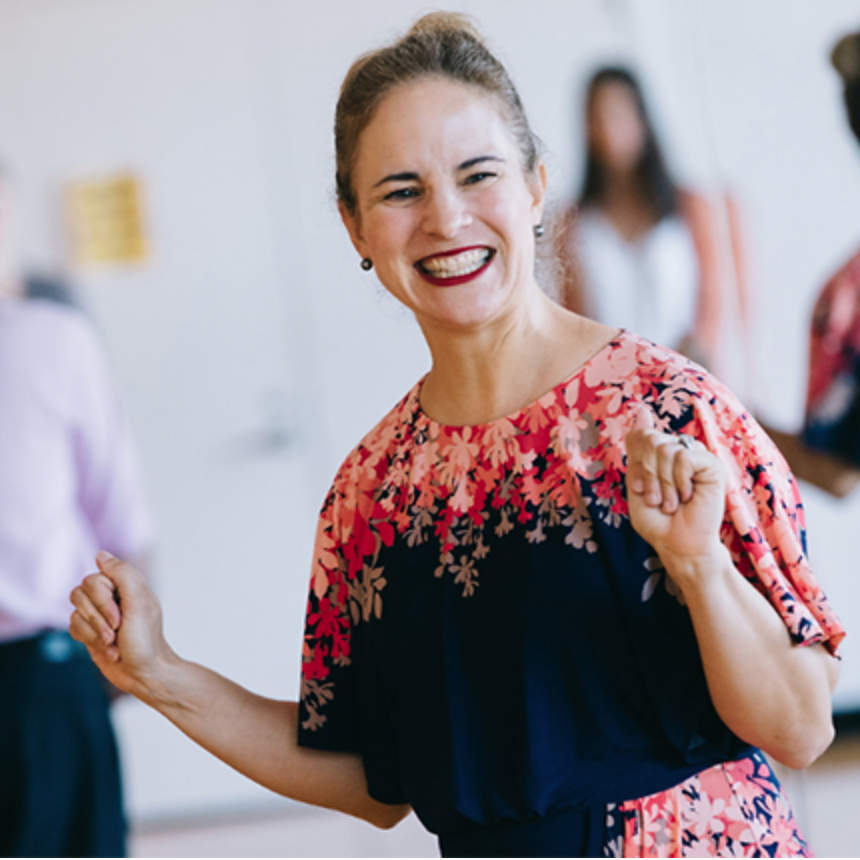In the next installment of “MedTalks”, I interview Dr. Madeleine Hackney, a research scientist and Associate Professor at Emory University’s School of Medicine.
Keep reading to find out if you have what it takes to become a research scientist!
Start by sharing a bit about yourself and your background. Where are you from?
Dr. Hackney’s career in academia started somewhat untraditionally, as her first degree was in Dance Performance at NYU. Dr. Hackney then completed a pre-medical course at Hunter College and got her PhD in Movement Science at Washington University.
Later, she received her postdoc at Emory University, which quickly became a professorship.
How did you transition from being a professional dancer to going to graduate school and pursuing research?
At 20 years old, Dr. Hackney began her career as a professional dancer. Her main focus was constant auditions, traveling, and performing.
Upon returning from a gig in Japan, Dr. Hackney decided to go back to school after seven years of dancing, recognizing the brief nature of the career and the strain it had on her body.
Why did you decide to pursue a PhD, rather than a MD?
Dr. Hackney knew she had specific ideas and questions about how different types of movement can lead to better function.
“I know it’s really important to retain your ability to move in this world. Even when I was in undergraduate study, I was looking into how we can move better.”
She had strong belief that one could teach themself how to move better, such as through Alexander Technique (a therapy designed to improve posture and self-awareness of the body), pilates, yoga, and other body therapies.
Though sports medicine or physical therapy were career paths she considered, Dr. Hackney knew they didn’t quite fit what she wanted to study. Ultimately, she found the movement science program at Washington University, which is also known as kinesiology, exercise physiology, motor learning, or the study of health and movement disorders.
In short, research was the most direct approach Dr. Hackney had to expand her ideas and answer her questions.
What are considerations for others thinking about a similar career path?
Number 1: Be aware that you might not get to make all the decisions.
After watching a documentary on the Discovery Channel about functional electrical stimulation–a treatment that sends an electrical current through a muscle to cause contraction–Dr. Hackney was amazed and thought she’d like to focus on spinal cord injuries going into graduate school.
However, because her doctoral advisor studied Parkinson’s disease, that was what she ended up studying as well. Thankfully, it ended up working out for Dr. Hackney.
Number 2: Be comfortable with writing. LOTS of writing.
Number 3: Be able to hustle for money (funds and grants).
Number 4: Be your own advocate.
Running a lab is a lot like running a small business. In order to have autonomy and freedom as a researcher, you need to be self-motivated. Know your goals and the steps you must take to achieve them.
Number 5: Know what you want to do with your degree.
There are several paths one could take after attaining a PhD, such as researching for industry or government, or teaching at a college.
Looking back at the beginning of your academic journey, what do you wish you knew then that you know now?
Dr. Hackney wishes she knew…
Perseverance is crucial.
Rejections feel bad. It can be hard to get papers approved and funded for research. Luck plays a part in how successful you are, as well as timing, circumstance, and field of study.
The economics of it all.
It is crucial to know how money flows from your organization to you and your research and how that affects your job security.
Being aware of your chances of getting grants at certain institutions, networking from the start of your career, and understanding the software and technologies you need can influence the money you make.
And lastly, what advice would you give to students interested in becoming a research scientist like you?
When people ask questions like, “Why do you even want to study this?” or “Why should you become that?”, don’t listen to them.
“It’s really easy to want to throw in the towel.”
As discussed before, the work of a research scientist is not always finding exciting and novel discoveries. It can be filled with monotony, tediousness, and financial struggles.
Dr. Hackney thinks it is important that you truly believe in what you’re studying and want it. If you can hang on to your passion, in spite of the challenges that come with pursuing it, then you’ll be alright.

